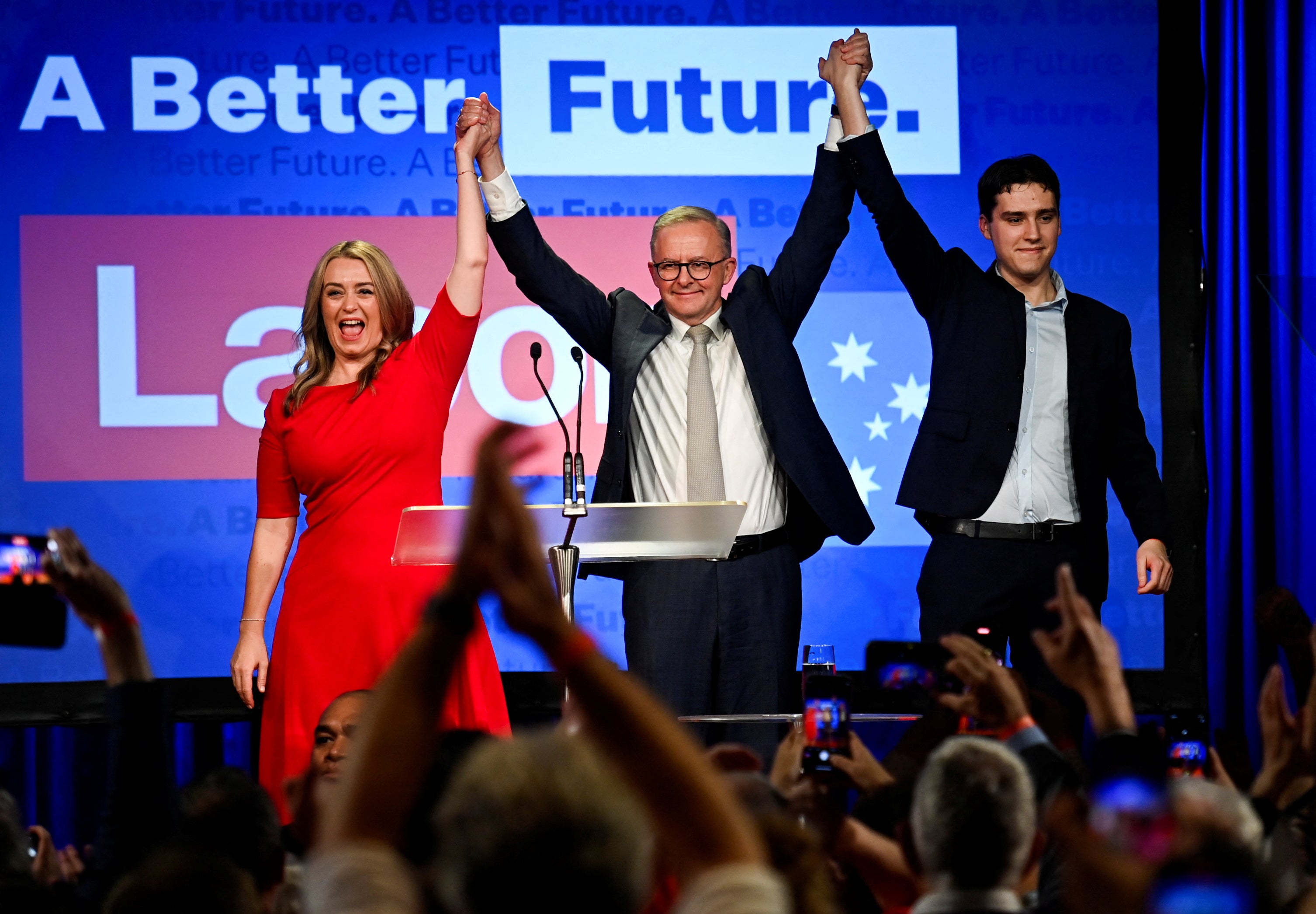The limited lessons of Australia’s ‘safe’ change to a slightly greener, more caring alternative
Editorial: The voters restored Labor to government in Canberra after nine years

There will be many articles over the next few days – some of them even in The Independent – in which the writer will conclude that the Australian election result confirms everything they already believed about politics.
In Britain, Labour supporters will claim it shows that an uncharismatic leader can prevail over anti-immigrant and “culture war” rhetoric by staying true to a traditional message of social justice. Conservatives will claim that Scott Morrison paid the price of departing from the values of his traditional supporters – the free market, low taxes and frugal public spending.
Greens will claim that their time is coming – their Australian equivalents gained ground as the third party in share of first-preference votes. Both the Greens and the Liberal Democrats might also point to the night’s biggest winners, the “teal” independent candidates, who gained most seats from the ruling Liberal coalition. These are a distinctively Australian group of anti-establishment politicians – not even a party. Most are strongly motivated by the climate emergency, with an attitude of “a plague on both your houses” towards the two main parties.
There is some truth in all these parallels, which will be underscored for many by the role played in Mr Morrison’s losing campaign by Isaac Levido, who ran Boris Johnson’s election campaign in the UK in 2019.
And there are some universal truths about the Australian election that would apply in most other countries. A party can lose and still win. Anthony Albanese’s Labor Party secured a smaller share of first-preference votes than it did three years ago, but its share of the vote went down by less than that of the Liberal coalition. Labor also benefited from the second preferences of Green voters in particular. The precise mechanism differs from one electoral system to another, but there are tactical and minor-party effects in almost all of them: in the next UK election, the behaviour of Lib Dem and Green voters could influence the outcome.
The other universal lesson is that, at a time of economic pressure, a mood for change is hard to resist. That mood is harder to resist if one party has been in power for some time. Nine years for the Liberals is a long stretch in Australian politics, with its maximum three-year terms. Mr Morrison tried to defy electoral gravity with bullish determination and by portraying his opponent as weak, but Mr Albanese was able to turn his long service in parliament to his advantage, as a safe alternative to a prime minister who had made too many mistakes. The implications for Boris Johnson are obvious, even if they are not conclusive.
In the end, countries and personalities are different, and the lessons of this election outside Australia are limited. Because of its geography, Australia has had a different experience both of migration and the pandemic from that of the UK, and indeed of most other rich nations. Surrounded by international waters, it has been able to prevent the arrival of asylum seekers by boat, and it was able to pursue a policy of zero Covid for longer than most other countries.
To keep up to speed with all the latest opinions and comment, sign up to our free weekly Voices Dispatches newsletter by clicking here
This election came down to a contest of competence over the cost of living, with strong cross-currents of compassion, climate change, and a desire to break with “politics as usual”. Those same ingredients may feature in other elections in other places, but in differing quantities and combinations.
In this election, as is so often the case in democracies, we believe the voters made the right choice, opting for a course correction rather than an attempted transformation.
If Australia is better governed, if it becomes greener, and if the hardship suffered by its less fortunate citizens is eased, then Mr Albanese will deserve the congratulations he has enjoyed.



Join our commenting forum
Join thought-provoking conversations, follow other Independent readers and see their replies
Comments